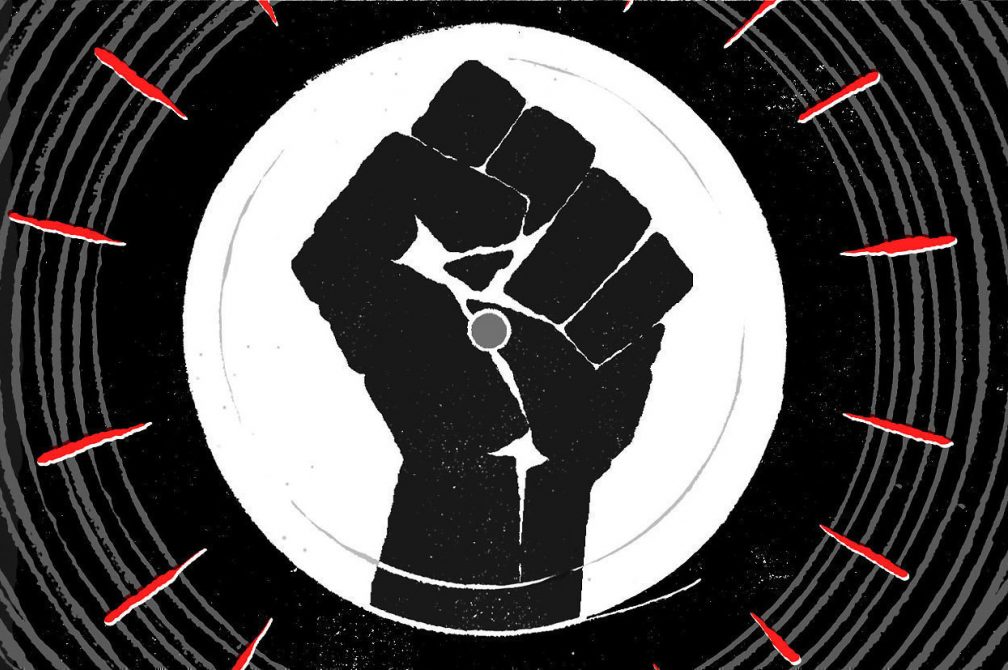 Features
Features
The politics in the productions
Despite the high rolling, celebrity status of dance music in 2015, these artists are proving the scene still has some revolutionary bite
The highly personal has also become deeply political in the work of more experimental dance music artists like Lotic and Arca. The former's recent 'Heterocetera' EP and the latter's 'Xen' LP, released last year, may not contain vocals, but through titles and interviews, both have revealed the identity politics that inform their work.
Views on the false promise of neo-liberalism took the forefront of the press that Jam City did around second album 'Dream A Garden'. The Night Slugs artist eschewed his previous club constructions in favour of a softer, more pop-informed sound and made statements to journalists such as, "It's so boring to walk out and get a pint of milk and be bombarded by these empty dreams, these empty lifestyles that we're being sold in these kind of glossy surfaces."
Underground house and techno has received a couple of wake-up calls recently. Levon Vincent made his new, self-titled album free to download for a full 24 hours before its actual release. He dedicated it to, "the ugly ducklings of the world. Music for swans. If you're a member of the rat race, climbing around a dumpster with the other rats vying for power, you may of course listen, but know – this is not music for you. This is action against you." While also read as a remark on diversity, his lack of concern for possible revenue lost also implies disdain for the avarice and covetousness of modern-day hyper-capital.
Pragmatically speaking, The Black Madonna is one artist putting her money where her mouth is. While she's vocal as an inspiring and lucid feminist and general queer advocate, in her role as booker for Chicago's seminal club Smart Bar, she's initiated the DAPHNE series of events based around women in leadership positions. As she told Electronic Beats, "I want to broaden the discussion a little bit and say that women have always been in electronic music…Somebody needs to reflect that reality. We talked about lighting a candle rather than cursing the darkness."
Sometimes an artist's mere existence is political. Perhaps no one embodies that more than DJ Sprinkles, aka transgender artist Terre Thaemlitz's house alter ego, who came up in 1980s New York and the almost exclusively gay ballroom scene of the early '90s. Her 2008 album ' Midtown 120 Blues' – dedicated to "sexual and gender crises, transgendered sex work, black market hormones, drug and alcohol addiction, loneliness, racism, HIV, ACT-UP, Thompkins Sq. Park, police brutality, queer-bashing, underpayment, unemployment and censorship – all at 120 beats per minute," – had more than a touch of melancholy colouring the deep house groove. 'Midtown 120 Blues' offers an alluring way into the sadness and despair she witnessed, and it's inspiring that she's become a main fixture on the club and festival circuit in 2015.
Although dance music can feel far removed from the revolutionary sparks that birthed it, it actually feels as though a resurgent politicisation is happening at every level, from Seth Troxler's heady vantage point to the dim-lit basements where Lotic DJs. In recent years, fueled by parallel gains in awareness – including multiple waves of feminism, intersectionality and gender studies, alongside growing if still unsatisfactory recognition of white privilege – Western culture's connectivity has allowed marginalized people and viewpoints a greater public voice. Seeing that reflected in the dance music community – whether in artists' personas, actions or the music itself – is an indication that artists and musicians still believe they can change the world for the better.


